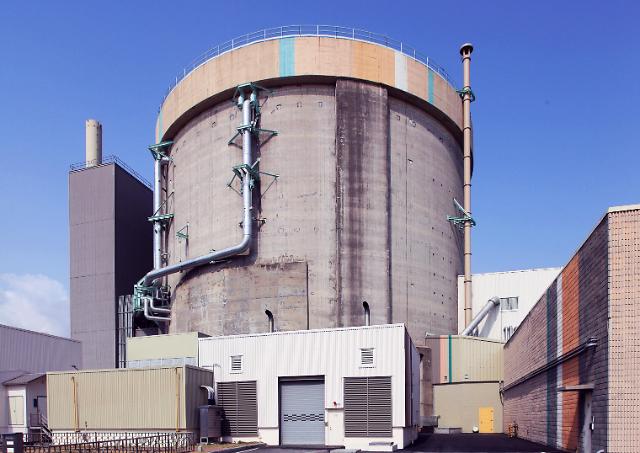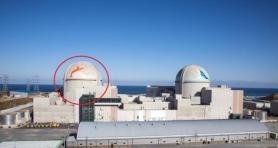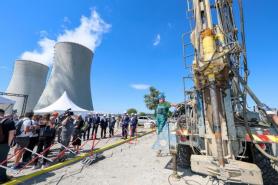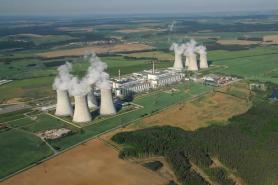
[Korea Hydro & Nuclear Power]
SEOUL -- Bowing to President Moon Jae-in's campaign to replace fossil-fueled power plants with clean and renewable energy sources, the state-run operator of South Korean nuclear power plants agreed Friday to shut down an old nuclear reactor and abandon the planned construction of four new plants.
Korea Hydro & Nuclear Power (KHNP) CEO Chung Jae-hoon said that the company's board has endorsed the permanent closure of the Wolsong-1 nuclear reactor in Gyeongju, about 280 kilometers (173 miles) southeast of Seoul. The board also scrapped plans to build four new plants in Uljin and Yeongdeok, both on the southeast coast.
Initially, Moon wanted KHNP to cancel plans to build six more plants under a new energy roadmap calling for an injection of about 110 trillion won ($101 billion) into renewable energy by 2030. But Chung said his company would put off its decision on two other plants, citing money spent on acquiring land.
Chung said the closure of Wolsong-1 would not affect South Korea's electricity supply because its power generation accounts for 0.6 percent of the total.
South Korea has 24 reactors in operation, which meet one-third of the country's power needs. Wolsong-1 became the country's oldest following the permanent shutdown of an aging reactor in the Gori complex near the southeastern port of Busan in June 2017.
KHNP's union vowed to fight back and nullify the board's decision. "It is absolutely unacceptable to shut down Wolsong-1, which has secured safety through an injection of enormous taxpayers' money," it said in a statement.
The 30-year operational life cycle of Wolsong-1, which was put into operation in 1983 in Gyeongju, terminated in 2012. Through renovation that required 560 billion won, it was resurrected in 2015 for another 10 years. However, Wolsong-1 was suspended after a 5.8-magnitude earthquake hit Gyeongju in September 2016. The quake left 14 people injured and four reactors in the region's nuclear power plant suspended operations for safety checks.
For decades, South Korea, which has almost no reserves of fossil fuels on its territory, has pushed for a nuclear energy program. However, public concerns over their safety grew following Japan's 2011 nuclear meltdown in Fukushima that drew unwelcome attention to the use of nuclear energy.
Under Moon's new energy policy, which has been opposed by the supporters of nuclear energy and related industry workers, South Korea will not extend the life cycle of existing reactors to decrease their number to 14 in 2038.
Copyright ⓒ Aju Press All rights reserved.



